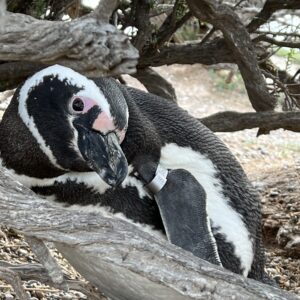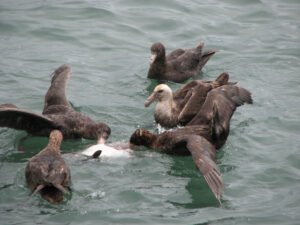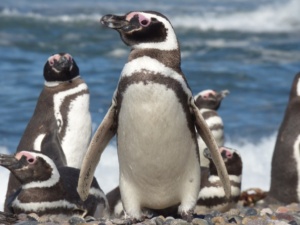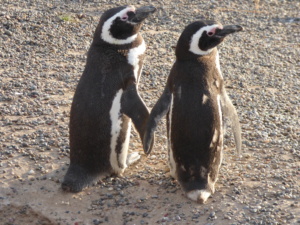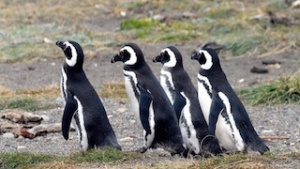Increasing environmental variability inhibits evolutionary rescue in a long-lived vertebrate
Authors: T. J. Clark-Wolf, P. Dee Boersma, Floriane Plard, Ginger A. Rebstock, and Briana AbrahmsJournal: PNASDOI: https://doi.org/10.1073/pnas.2406314121 “Using a multidecadal dataset on Magellanic penguins, we show that despite strong selection on body size, some environmental conditions favored larger bodies, and others favored smaller bodies, thus preventing consistent evolution in one direction or the other […] Such findings highlight that fluctuating […]
